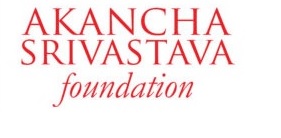
Cybercrime encompasses a wide range of criminal activities that are carried out using digital devices and/or networks. These crimes involve the use of technology to commit fraud, identity theft, data breaches, computer viruses, scams, and expanded upon in other malicious acts. Cybercriminals exploit vulnerabilities in computer systems and networks to gain unauthorized access, steal sensitive information, disrupt services, and cause financial or reputational harm to individuals, organizations, and governments.
The Australian High Tech Crime Centre (AHTCC) are hosted by the Australian Federal Police (AFP) at their headquarters in Canberra. Under the auspices of the AFP, the AHTCC is party to the formal Joint Operating Arrangement established between the AFP, the Australian Security Intelligence Organisation and the Computer Network Vulnerability Team of the Australian Signals Directorate.

Rajendra Singh Pawar is an Indian entrepreneur, chairman and co-founder of NIIT Limited, established in 1981. He also founded NIIT University, a not-for-profit university in Neemrana, Rajasthan, in 2009.

The Ministry of Home Affairs, or simply the Home Ministry, is a ministry of the Government of India. It is mainly responsible for the maintenance of internal security and domestic policy. It is headed by the minister of home affairs.
Internet safety, also known as online safety, cyber safety and electronic safety (e-safety), refers to the policies, practices and processes that reduce the harms to people that are enabled by the (mis)use of information technology.

Aadhaar (Hindi: आधार, lit. 'base, foundation') is a twelve-digit unique identity number that can be obtained voluntarily by all residents of India, based on their biometrics and demographic data. The data is collected by the Unique Identification Authority of India (UIDAI), a statutory authority established in January 2016 by the Government of India, under the jurisdiction of the Ministry of Electronics and Information Technology, following the provisions of the Aadhaar (Targeted Delivery of Financial and other Subsidies, benefits and services) Act, 2016.
The Cyber Crime Unit of the Hellenic Police, for which legislative responsibility remains with the Ministry of Citizen Protection, was officially founded in 2004 with Greek Presidential Decree 100/2004 Government Gazette 69/Α/3-3-2004. In 2011 with Presidential Decree 9/2011 Government Gazette 24/Α/21-2-2011 was the establishment of the Authority of Financial Police and Cyber Crime Subdivision, of Police Directorate level, commenced operation in August 2011 comprises the Financial Police Subdivision and the Cyber Crime Subdivision. It was reformed in 2014 with Article 17 of Section 2 of Law 4249/2014 Government Gazette 73/Α/24-3-2014 in which renamed Cyber Crime Division, including the foundation and structure of Cyber Crime Subdivision of Northern Greece in Thessaloniki. Although it is still continues to be commonly known to as Cyber Crime Unit or Cyber Crime Center. The legislation for the Cyber Crime Division has amended with the Article 31 of the Presidential Decree 82/2020 Government Gazette 183/A/23-9-2020.

Mass surveillance is the pervasive surveillance of an entire or a substantial fraction of a population. Mass surveillance in India includes Surveillance, Telephone tapping, Open-source intelligence, Lawful interception, and surveillance under Indian Telegraph Act, 1885.

Digital India is a campaign launched by the Government of India to make its services available to citizens electronically via improved online infrastructure and by increasing Internet connectivity. The initiative includes plans to connect rural areas with high-speed internet networks. It consists of three core components: the development of secure and stable digital infrastructure, delivering government services digitally, and universal digital literacy.
The National Cyber Coordination Centre (NCCC) is an operational cybersecurity and e-surveillance agency in India. It is intended to screen communication metadata and co-ordinate the intelligence gathering activities of other agencies. Some have expressed concern that the body could encroach on Indian citizens' privacy and civil-liberties, given the lack of explicit privacy laws in the country.

OLX Group is a Dutch-domiciled online market place headquartered in Amsterdam. The OLX consumer brand originated as OnLine eXchange in 2006. OLX Group is owned by Prosus, the international assets division of Naspers.
BHIM is an Indian state-owned mobile payment app developed by the National Payments Corporation of India (NPCI), based on the Unified Payments Interface (UPI). Launched on 30 December 2016, it is intended to facilitate e-payments directly through banks and encourage cashless transactions. The application supports all Indian banks which use UPI, which is built over the Immediate Payment Service (IMPS) infrastructure and allows the user to instantly transfer money between 170 member banks of any two parties. It can be used on all mobile devices.

Karuppannan Jaishankar is an Indian criminologist. He is the Founder and Principal Director and Professor of Criminology and Justice Sciences at the International Institute of Justice & Police Sciences, a non-profit academic institution and independent policy think tank in Bengaluru, Karnataka, India and an Adjunct Faculty Member of the United Nations Interregional Crime and Justice Research Institute, Italy & University of Peace, Italy, and he teaches modules of the Master of Laws (LL.M.) in Cybercrime, Cybersecurity and International Law.
Karnika Seth is an Indian lawyer, writer, educator, and policymaker. She specializes in cyber law, intellectual property law, media law, and the protection of women and children. She is one of the co-founders of the law firm Seth Associates and manages its Corporate & Cyber laws practice.

Sunil Abraham is an Indian technology policy analyst and free software advocate, and the director of public policy at Facebook India. He was formerly an endowed professor at ArtEZ University of Arts and the co-founder and executive director of the Centre for Internet and Society. He is a board member of Open Society Foundations. and an honorary steward at Shuttleworth Foundation. He joined Facebook in October 2020 to lead their Public Policy division in India.

Rekha Sharma is the former Chairperson of the National Commission for Women in India.

Akancha Srivastava, is the founder of Akancha Srivastava Foundation. The Foundation was formed in 2017. It is an 80G certified, non-profit organization in India that works for the education and empowerment of people by imparting the knowledge of cyber safety via its initiative Akancha Against Harassment.
Cybersex trafficking, live streaming sexual abuse, webcam sex tourism/abuse or ICTs -facilitated sexual exploitation is a cybercrime involving sex trafficking and the live streaming of coerced sexual acts and/or rape on webcam.
Data breach incidences in India were the second highest globally in 2018, according to a report by digital security firm Gemalto. With over 690 million internet subscribers and growing, India has increasingly seen a rise in data breaches both in the private and public sector. This is a list of some of the biggest data breaches in the country.
DigiKavach is an online fraud identification program, designed to prevent online financial fraud in India.










